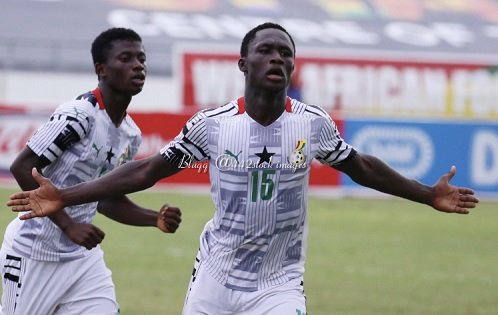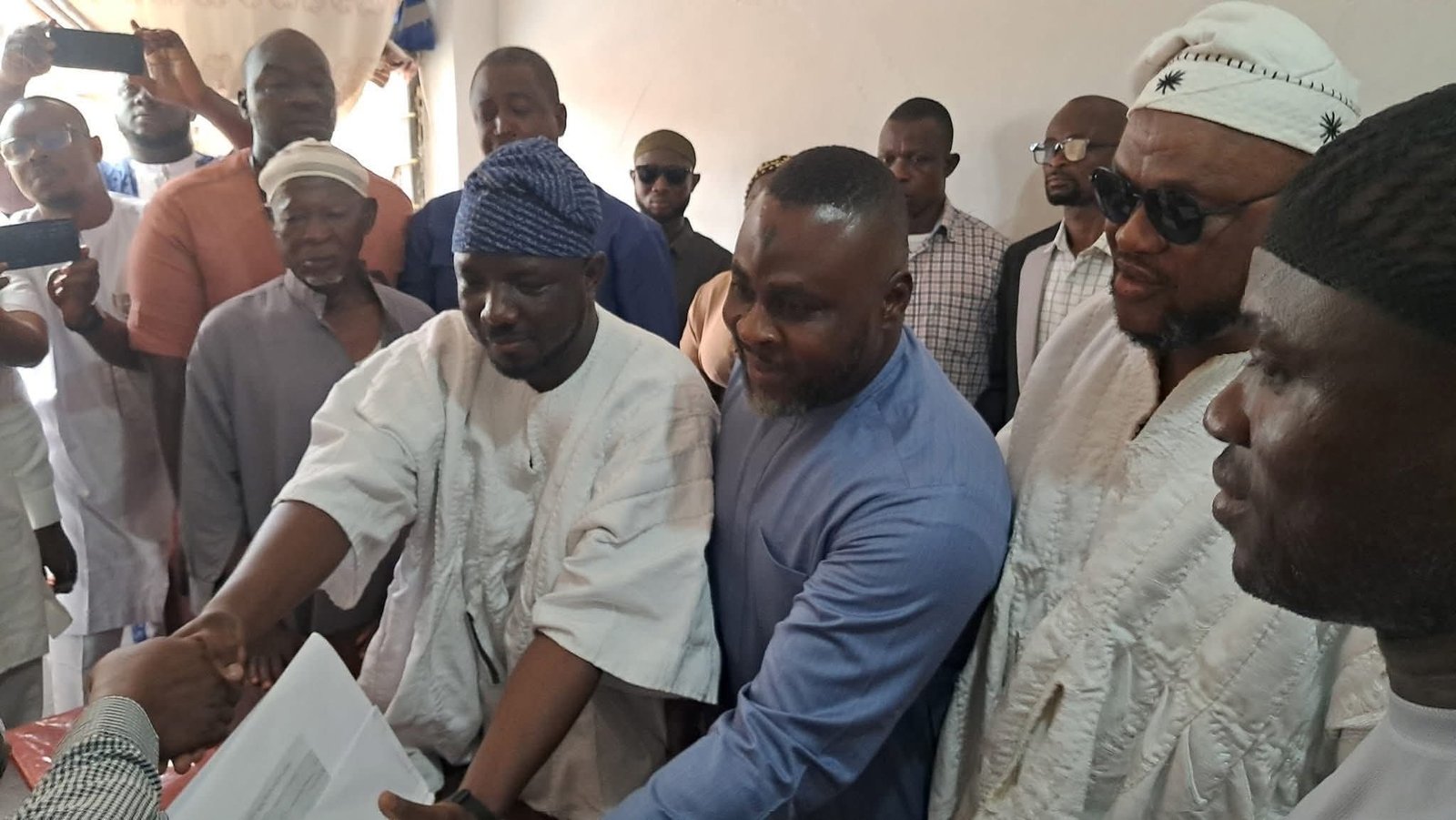Hot!
What’s happening to our age-group football?

Years back, Ghana’s age-group football teams were spectacles to behold. They were a real charm.
The national Under-17 side (Black Starlets), the Under-20 and Under-23 teams (the Black Satellites and Black Meteors) were always the cynosure of all eyes; and whenever the senior national team (Black Stars) disappointed, we had the age-restricted outfits jumping in to bail the nation out of its desolation and torture.
The Starlets, for instance, delighted everybody with its trademark of tantalizing football and won the hearts of millions across the world. That the ‘Twinkling Twinkling Little Stars’ as the two-time World Cup-winning Starlets are known, dazzled and burrowed their way into the hearts of the fairer sex, is an assertion that cannot be contorted.
On the continental front, as well, they are three-time champions.
The Satellites, too, have been champions in their own right – brushing aside everything they surveyed, especially in the 90s. Do not forget this is that evocatively vintage side that upstaged Brazil in the final of the FIFA World Under-20 Youth tournament in 1999, becoming the only African team to win this trophy.
For the Black Meteors, the fact that they became the first African team to clinch bronze at the Olympic Games (Barcelona 1992), speaks volumes.
Sadly, today, the nation’s age-group teams are steadily but speedily turning into also-runs at qualifiers and tournaments, making many wonder whether our future have any dependable future, at all.
Only last week, hosts Ghana failed to qualify for the 2023 U-17 Africa Cup of Nations after losing 1-0 in the West African Football Union (WAFU) Zone B semi-finals to Burkina Faso, at the Cape Coast Stadium. It was the second successive failure of the Starlets, having failed earlier in 2019 which also denied them qualification to the World Cup.
In May, this year, the Satellites also crumbled in their bid to defend their WAFU Zone B title after losing to Burkina Faso 2-1 in the second group game. The defeat saw them miss out on the Africa U-20 Cup of Nations and the FIFA World Cup in Egypt and Indonesia respectively. Ghanaians were horrified by the slouch.
In the case of the Meteors, the last time they qualified for the Olympic Games was as far back as Athens 2004 – some 18 years ago. That is grossly unacceptable.
Clearly, there is something those in charge of our football are not doing well over the years. It is either they have gone to sleep or are getting their tactics off beam.
Indeed, it is time for our football authorities to wake up from their slumber and begin to do the right thing. Some of the players we have seen don the national colours of these junior national teams are anything but pedestrian – and sometimes have triggered suspicions of ‘position buying’ in the eyes of the public.
In those halcyon days, a decent number of our talents were picked from the Inter Colleges and Schools Sports festivals. What has happened to that system now? What has happened to active juvenile football league that was promised by the Ghana Football Association (GFA)? These were the models that produced marquee names like Michael Essien, Sulley Ali Muntari, Mubarak Wakasu, Samuel Inkoom, Baba Rahman, John Mensah, and many others.
Look at the embarrassment and shame that the nation had to endure recently when as many as 20 Starlets players had to be dropped few days ahead of the WAFU B Under-17 Nations Cup for failing the MRI tests. Why should that be the case?
Without any shred of doubt, that incident played a massive part in the 4-2 defeat of the team by Nigeria in the opening game, leading to their eventual failure to make it to the continental tournament proper. Question: What went into the selection of the players by Coach Paa Kwesi Fabin? This is not the first time our players have been caught by the MRI and it begs the question as to whether we are a serious football nation, at all?
Come to think of it, our female Under-17 team – Black Maidens, were also recently accused of age-cheating by their Moroccan counterparts, threatening to report Ghana to FIFA. The Moroccans eliminated the Maidens 4-2 on penalties to book a place at the Under-17 World Cup in India, slated for October, this year.
Maybe, let us say it was all mind game by the North Africans and we succumbed to it. Perhaps!
Whilst we commend the national Under-20 women’s team (Black Princesses) for qualifying for this month’s FIFA World Cup in Costa Rica, the Ghana FA must do a deep soul-searching of its policy as regards building a compellingly winsome age-group sides capable of winning medals again for the nation.
This nation abounds in embarrassing depth of talents which can be explored through an elaborately well thought-out programme – right from the juvenile league system through to the schools-inter colleges’ football competitions.
It is also imperative that we see some progression. Fact that the age-group teams failed to qualify for their respective competitions is not enough raison d’être to press the jettison button and throw them overboard when there are a couple of talents in there to pick and choose for the next level.
We witnessed how we glistened in the age-category football in the 90s because of that clairvoyant progression that saw the likes of Starlets’ Odartey Lamptey, Isaac Asare, Emmanuel Osei Kuffuor, Yaw Preko and Emmanuel Duah among others, draft into the Satellites, Meteors – and later the Black Stars.
If for nothing at all, that succession plan should see our teams exhibit some quality in terms of cohesion, unity and solidity in performance – a positive feature we have been lacking for a while now.
PlainTalk with John Vigah
Hot!
Prof Alidu Seidu files nomination for Tamale Central seat

The newly elected parliamentary candidate of the National Democratic Congress (NDC) for Tamale Central, Prof Alidu Seidu, has submitted his nomination forms to the Electoral Commission.
As of 10:00 a.m. today, he was the only person who had filed to contest the seat.
Nomination of candidates will close at the end of the day.
Associate Professor and Head of the Political Science Department at the University of Ghana Legon, Prof. Alidu Seidu won the National Democratic Congress (NDC) parliamentary primaries in the Tamale Central constituency with a landslide victory.
The elections, supervised by the party’s Elections and IT Directorate in the Northern Region, saw Prof. Seidu poll 840 votes out of the total valid ballots cast.
His closest contender, Lawyer Hanan Gundadow Abdul-Rahaman, secured 536 votes.
The other aspirants could not make significant gains, with Dr. Seidu Fiter obtaining 44 votes, Aliu Abdul-Hamid 23 votes, and the rest recording fewer than 10 votes each.
In all, 1,500 ballots were cast, with 6 ballots rejected and 7 spoilt ballots recorded.
The results were signed and declared by Dr. Arnold Mashud Abukari, NDC Northern Regional Director of Elections and IT.
The National Democratic Congress (NDC) held parliamentary primaries in Tamale Central to choose a candidate for the upcoming by-election following the death of the sitting Member of Parliament, Dr. Ibrahim Murtala Mohammed. Dr. Mohammed, who also served as Minister for Environment, Science, Technology and Innovation, tragically died in a military helicopter crash in the Adansi Akrofuom District on August 6, 2025, alongside seven others.
His passing left the Tamale Central seat vacant, as required by Ghana’s 1992 Constitution.
The Electoral Commission has scheduled the by-election for September 30, 2025. While the NDC moved quickly to open nominations and vet aspirants, the New Patriotic Party (NPP) announced it would not contest the seat, citing the need to respect the somber circumstances and promote national unity.
By: Jacob Aggrey
Hot!
Ghana to locally refine its gold starting October 2025 – Sammy Gyamfi

The Chief Executive Officer of the Ghana Gold Board, Sammy Gyamfi, has announced that plans are far advanced for the establishment of a state-owned gold refinery in the country.
Speaking at the 2025 Minerals and Mining Convention, Mr Gyamfi said the refinery will process locally mined gold into bullion instead of exporting it in its raw state.
According to him, it is unacceptable that Ghana, despite being a leading gold producer in Africa, continues to export raw gold known as dore.
He explained that the Gold Board, working with the Bank of Ghana and local refineries, will from October 2025 begin refining gold locally.
He also disclosed that an ultramodern assay laboratory will be built to ensure international standards in testing gold quality.
Mr Gyamfi noted that the refinery will be wholly state-owned and will help Ghana move away from raw mineral exports to value addition.
This, he said, will boost foreign exchange earnings, create jobs, and position Ghana as a hub for gold refining and jewellery production in Africa.
The CEO stressed that the project forms part of government’s strategy to ensure the country benefits fully from its natural resources and to transform the mining sector into a driver of economic growth.
By: Jacob Aggrey






